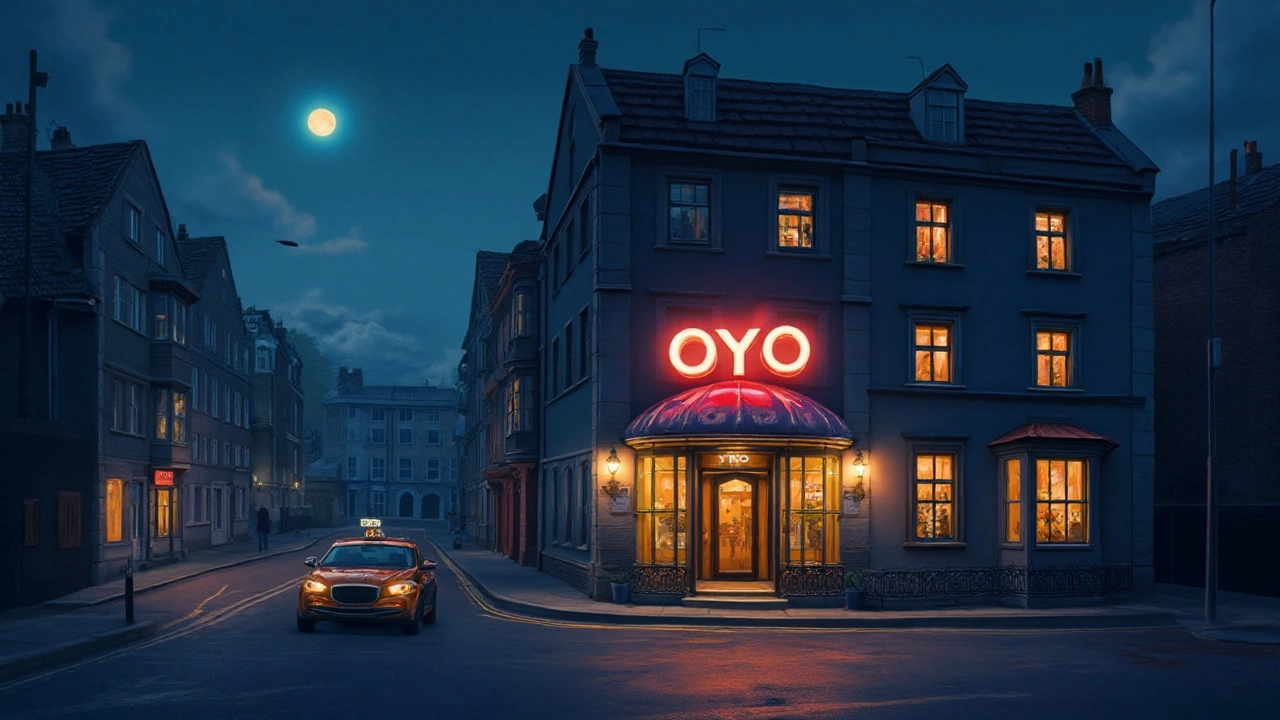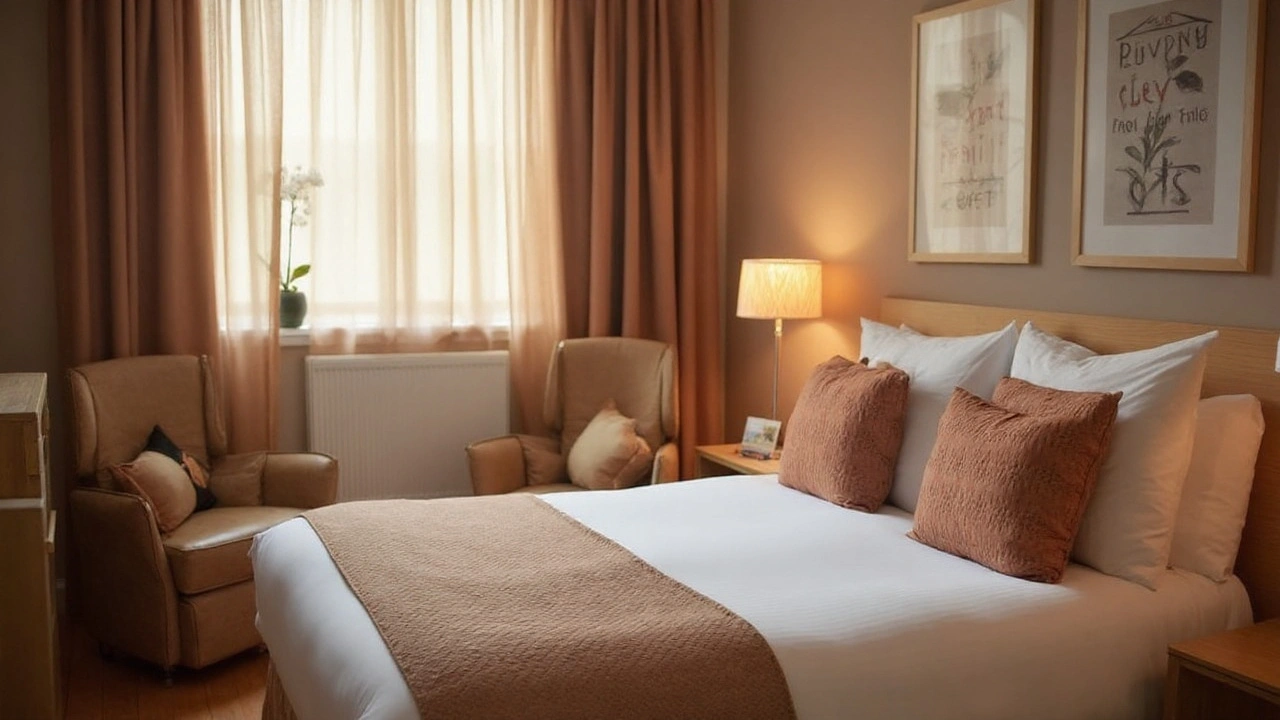“Is OYO safe for intimacy?” The question pops up in almost every group chat, especially if you’ve just started dating, live in India, or are planning a trip with your partner. Maybe you’re trying to escape the judgy eyes at home, find a cozy spot with zero nosy stares, or explore intimacy without worrying about awkward interruptions. The thing is, while OYO is practically a household name when it comes to budget hotels, reviews and stories online can swing wildly. Some say it’s heaven for couples; others claim they’d never risk it. So, let’s get to the heart of the matter and answer everything you’ve probably wondered—what’s genuinely safe about OYO rooms, what you need to watch out for, and how you can make your stay smooth, fun, and hassle-free.
Understanding OYO’s Approach to Couple Safety
If you’re new to OYO, here’s a quick lowdown: OYO started in 2013 and quickly won over millions of travelers in India with its promise of affordable rooms. But what sets it apart for couples is the brand’s public embrace of “couple friendly” stays. OYO literally advertises that unmarried couples can book rooms without drama. That’s a pretty bold move for a country where traditional hotels love playing moral police. OYO’s platform now marks certain hotels as “OYO Welcomes Couples,” meaning you won’t be turned away just for checking in with your boyfriend, girlfriend, or same-sex partner.
Why does this matter? Ask anyone who’s been grilled by a reception desk for ID, stared down by security, or just plain refused a room—they’ll tell you how stressful and humiliating it can be. OYO went all in to change the narrative. They require only a government-issued ID (Aadhaar, driving license, passport, or voter ID), not a marriage certificate. Policies are spelled out online and, for the most part, honored on the ground—especially in city hotels OYO owns and manages directly.
But here’s the twist: OYO mostly acts as a booking platform, connecting you to independent hotels or franchises. Policies can vary. According to a 2023 survey by LocalCircles, about 74% of unmarried couples who booked at OYO-marked “couple friendly” hotels reported a smooth experience—no questions asked, privacy respected, and zero surprise pop-ins. That leaves about a quarter who faced some sort of hiccup—extra questions at check-in, fees, or rare but awkward calls from reception reminding them about “rules.” So, while OYO’s central policy aims for full comfort and privacy, individual hotel staff sometimes have their own takes, which can be frustrating in smaller cities or conservative neighborhoods.
There’s an important detail: OYO doesn’t allow any illegal activity. Hotel management is legally obligated to report suspicious behavior (you know, if people try something actually shady or break laws). If your relationship is consensual and both are over 18, you’re good. But you must bring valid physical ID (soft copy isn’t always accepted). Couples have reported being denied check-in or subjected to nosy questions, especially if they look significantly younger or staff believe they’re “misrepresenting” their relationship. Always double-check if the hotel is truly couple friendly, even if marked as such online—call ahead to confirm, and don’t be shy about asking direct questions.
Privacy & Security: What OYO Really Offers Behind Closed Doors
The whole point of booking a hotel with your partner is privacy. No one wants random staff knocking every hour, poor soundproofing, or cameras outside every door. So how does OYO stack up when it comes to actual security for intimacy?
Most OYO hotels designed for couples are pretty mindful of privacy. At check-in, discreet service is a top priority in major cities. Staff stick to their jobs, housekeeping won’t bother you unless requested, and the rooms themselves are set up for quiet, undisturbed time. Full-length curtains, secure locks, and, in many cases, electronic cards limit outsider access to your floor. If you’re the type to worry about your privacy being invaded, look for OYOs ranked highly (4+ stars on Google or OYO app) and scan reviews for “discreet service” or “no disturbance.”
CCTV is part of the deal in all hotels—usually limited to common areas for safety. You should never see CCTV in the rooms themselves (if you ever spot something weird, leave immediately and report it). Smaller hotels may cut corners, so make it a habit to check for hidden cameras using your phone’s flashlight or a camera-detection app. It might sound paranoid, but people have found devices hidden in wall clocks, air purifiers, or smoke detectors. It’s rare, but always better safe than sorry.
About soundproofing—budget OYO rooms can be hit or miss. You might hear hallway chatter or the TV next door. That’s more a quirk of older properties than OYO itself, so request a corner room or top-floor room for fewer disturbances. If staff attempt to enter without knocking or you feel uncomfortable, don’t hesitate to complain directly to OYO customer care; they actually answer within minutes via the app chat.
Some OYOs go the extra mile: in newer properties managed directly by OYO, rooms feature double locks, peephole covers, and in-room safes. You can lock away valuables or sensitive IDs so you aren’t worrying about them while relaxing. At check-in, couples report that staff rarely ask for both partners’ IDs (unless local police do a spot check), but you should always have both handy. Need extra privacy? Use the “do not disturb” sign or request late housekeeping. The fewer interruptions, the better.

Dealing With Social Stigma and Awkward Interactions
Here’s the thing nobody likes to talk about: the real “safety” risk for most couples isn’t crime or theft—it’s social judgment. You’re often more scared of those judgy stares at the front desk, whispers among the staff, or the suspicious manager peeking when you walk past. This is especially true for LGBTQ couples or those in conservative areas.
In metropolises like Delhi, Mumbai, and Bangalore, OYO front desks barely bat an eyelid. I’ve checked in with Eamon at more than a dozen OYO properties—no sticky questions, just a polite ID scan. But in tier-2 and tier-3 cities, expect some awkwardness. A 2024 India Today feature found that in these regions, 31% of unmarried couples faced queries like “Are you married?” or “Why are you traveling together?” Technically, there are no legal barriers to unmarried adults sharing a room, but a few hoteliers still try to act as gatekeepers of morality.
If you encounter attitude at check-in, stay calm and remind staff that OYO welcomes all adult couples. Point to the hotel’s listing on the app—show the “couple friendly” badge—and ask to speak to the OYO zone manager if you hit a brick wall. Most cases get sorted out this way. If you ever feel genuinely unsafe—like being threatened, harassed, or filmed—leave and file a complaint with OYO. They’re pretty serious about investigating, and you’ll usually get a refund or at least a transfer to a different property.
Want to dodge social stress? Travel with a small bag and avoid grand entrances that draw unnecessary attention. Be polite but don’t let anyone shame you. It might sound silly, but wearing wedding rings or dressing conservatively can help avoid annoying questions—though you shouldn’t have to pretend. For same-sex couples, urban OYOs are way more comfortable, but you can always call ahead and check staff attitude before booking. If something feels off, trust that gut feeling.
OYO Safety Tips for Couples Seeking Intimacy
There’s a way to make sure your OYO stay is as safe and private as you need. Here’s a checklist every couple should know before they hit “book”:
- Always verify “couple friendly” status on OYO’s app—don’t just rely on Google or third-party sites as info can be outdated.
- Call the property directly after booking. Confirm their check-in policies, ask if both guests need to provide ID, and get a feel for their attitude.
- Bring original physical IDs that match your booking info.
- Read recent reviews on both OYO and Google focusing on terms like “privacy,” “discreet,” or “staff behavior.”
- Check the security arrangements—are corridors, elevators, and entrances monitored? How about fire safety?
- At check-in, keep your conversation brief and confident. The less nervous you appear, the less likely you’ll invite scrutiny.
- Once inside, do a basic safety sweep: check for cameras, make sure locks and windows are secure, and note emergency exit paths.
- Keep a low profile. Avoid loud music or drawing attention to your room.
- If anything feels off—creepy staff, weird noises, or odd visitors outside your door—contact OYO support directly through the app, not just the hotel management.
- Don’t let anyone (staff or otherwise) enter your room without clear reason. Always use the door’s peephole before opening.
According to OYO’s published stats, properties flagged “couple friendly” see fewer incidents of privacy breaches than traditional hotels. In a mid-2024 OYO guest experience survey, 89% of couples rated their stays as “private and secure.” Problems mostly happen when guests fly blind (not checking reviews or calling ahead), or stay in lower-rated locations. The chain’s app is the most direct line for help—don’t hesitate to hit that support button if you need backup.

Comparing OYO With Other Accommodation Options for Couples
If you’re still wondering if OYO is your best bet, let’s compare it to other budget and mid-range options. Regular motels and local hotels are usually stricter about “moral policing.” You might be asked to show a marriage certificate or refused altogether if you look “too young” or if the staff are old-fashioned. International brands like Marriott or Hyatt are chill in big cities but mostly out of reach price-wise for many young couples.
Airbnb is sometimes seen as an alternative for privacy. But even there, hosts can reject bookings for unmarried or same-sex couples, and privacy issues are harder to resolve without a central support system. Guesthouses and serviced apartments might give more autonomy but usually have less oversight on safety or cleanliness.
Here’s a quick look at guest experience comparisons for couples in India in 2025:
| Accommodation Type | Intimacy Privacy | Ease of Booking for Unmarried Couples | Discreet Staff | On-Site Security | Price Range (INR/night) |
|---|---|---|---|---|---|
| OYO (Couple Friendly) | High | Very Easy | Usually Yes | Standard | 1,000–3,000 |
| Local Budget Hotel | Medium-Low | Difficult | No | Basic | 1,000–2,500 |
| Mid-Range Chain | High | Easy | Yes | High | 3,000–7,000 |
| Airbnb | Varies | Depends on Host | Yes (if no host-on-site) | Varies | 1,500–5,000 |
So, for pure ease of booking, privacy, and affordability, OYO’s couple-friendly properties remain the most accessible choice for most young people. Especially if you want to OYO safety and discretion without spending a small fortune.
But nothing’s perfect. OYO’s experience depends heavily on how careful you are about checking reviews and vetting the property before arrival. If you want a little extra assurance, stick to OYO’s managed chain hotels (like Townhouse, Collection O, or SilverKey), which tend to have more standardized staff training and stricter privacy rules. Boutique OYOs in upscale neighborhoods or close to business districts are less likely to enforce outdated “moral” ideas. If you want to avoid all the stress and don’t mind paying more, book with a known international brand. But for most, the combination of accessibility, protection, and couple-friendly logic at OYO makes them the top pick.
